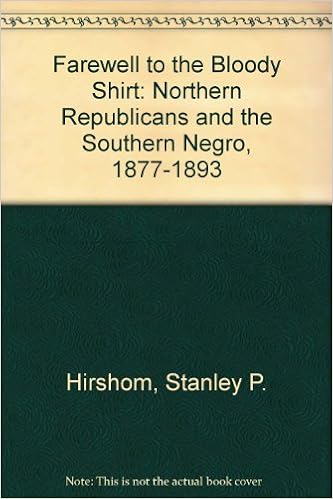
The North’s Republican Party was solely responsible for the postwar Solid South which opposed their Reconstruction efforts, and the former utilized the newly-enfranchised freedmen to establish a Southern wing to maintain their national hegemony. To hold Northern votes the Republicans waved “the bloody shirt”; at the same time they swayed the black voter with warnings of newly-elected Democrats re-enslaving them. Below, the home State of Carl Schurz was not Missouri, he was a socialist revolutionary from Erftstadt, Germany, elevated by Lincoln to attract German immigrant support for his war.
Bernhard Thuersam, www.Circa1865.com The Great American Political Divide
Republicans and the Freedmen’s Role
“One of the first [Northerners] to change his mind about the freedmen was Carl Schurz. In 1865, after a Southern tour, he had recommended that the Negro be enfranchised, disregarding the fact that “the [white] masses are strongly opposed to colored suffrage.” But in 1870, when he realized that uneducated Negroes were an easy prey for spoilsmen, Schurz admitted that he had erred.
To his disgust the [Republican] machine politicians in Missouri, his home State, dominated the scene by manipulating ignorant, but enfranchised, Negroes. Henceforth, Schurz steadfastly opposed all legislation designed to aid the colored man. And he assumed that anyone who tried to stir up sectional passions had yielded to the worst elements in the Republican organization.
Although the transition in the thinking of George William Curtis, the editor of Harper’s Weekly, was far different, he eventually reached the same conclusion. Like Schurz, Curtis after the war favored Negro suffrage. He argued that the freedmen had proven their loyalty and deserved the ballot. Admittedly, many of them were ignorant, but so were “great masses of Northern voters. Education,” he wrote, “is a good thing; but it appears some of the staunchest patriots in the land cannot read, and that some of the basest traitors are highly educated.”
During the 1880 campaign Harper’s Weekly vigorously denounced the Solid South. He then said that the Southern question was dead. The federal government could do nothing more to help the Negro. After that, Curtis joined Schurz in resisting all attempts to stir up the race issue.
A third distinct case was Edwin L. Godkin of the Nation. Although he begrudgingly advocated the enfranchisement of the Negro after the Civil War, he never abandoned the conviction that white Anglo-Saxons were inherently superior to “ignorant foreigners” and atavistic colored men. “I do not oppose the admission [to suffrage] of such Negroes as shall prove their fitness,” Godkin wrote in 1865. “. . . What I ask, and meant to ask, was not that the blacks shall be excluded as blacks, but simply that they shall not be admitted to the franchise simply because they are blacks and have been badly treated.”
Godkin recommended the disenfranchisement of all Negroes who could not learn to read or write within two years. Only by developing his intelligence could the colored man distinguish between “statesman and demagogue; between honest public men and knavish public men; between his own real friends and his real enemies.”
Although Godkin originally supported the Radical plan of Reconstruction, which provided for military enforcement of Negro suffrage, he was convinced by 1871 that this adventure had failed.
“We owe it to human nature to say that worse governments have seldom been seen in a civilized country,” the editor admitted. “They have been composed of trashy whites and ignorant blacks.” Control of Southern affairs should be returned to those “who have most influence and knowledge.” The simple truth was that the freedmen were unfit for the role the Republicans desired them to play: “Any party in which the Negro is in the majority, cannot help having its policy, if not shaped, greatly influenced by their political ignorance and incapacity.”
(Farewell to the Bloody Shirt, Northern Republicans and the Southern Negro, 1877-1912, Stanley P. Hirshson, Indiana University Press, 1962; excerpts pp. 126-128)

No comments:
Post a Comment